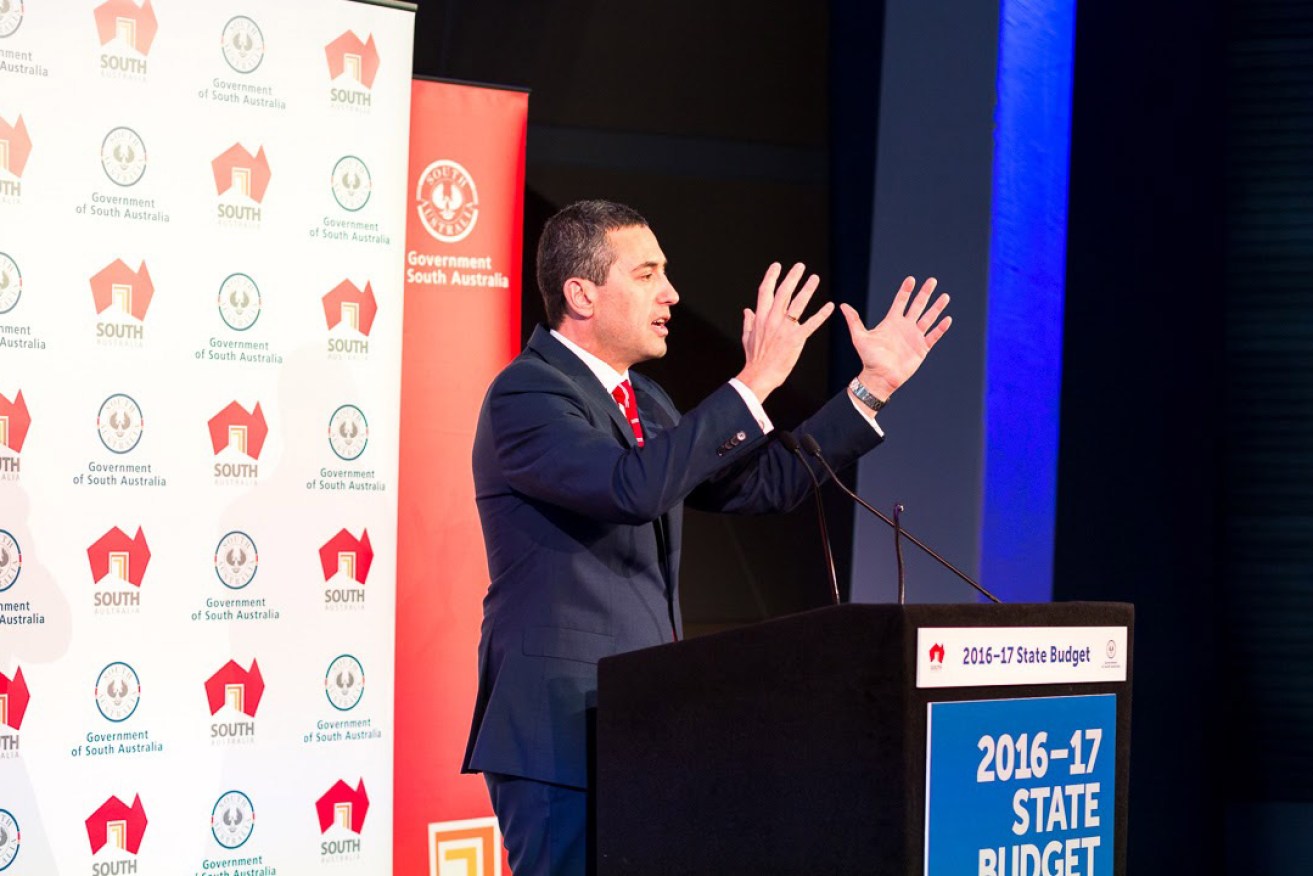Koutsantonis caves on pay cap for 30,000 public servants
Treasurer Tom Koutsantonis has caved to pressure on his 1.5 per cent pay cap for public servants, offering pay rises higher than the cap to more than 30,000 government workers, InDaily can reveal.


Treasurer Tom Koutsantonis announced the 1.5 per cent cap in his 2016 State Budget, forecast to save the taxpayer $375 million over four years.
The Government has offered the vast majority of the 37,000 public servants employed under the South Australian Modern Public Sector Enterprise Agreement pay increases of at least two per cent, each year, over the next two years.
The deal would affect workers across a range of government agencies, including allied health professionals, prison officers, clerical and administration staff, child protection and youth workers and residential care providers, among others.
Koutsantonis announced 1.5 per cent cap in 2016 state budget – estimated to save $375 million over four years – to the chagrin of the Public Service Association, which argued its members would become “second-class” workers because those represented by unions that were already negotiating enterprise bargains when the budget was handed down, including the state’s nurses, were granted higher pay rises.
InDaily has obtained a copy of the Government’s letter of offer to the PSA, proposing that public servants on salaries lower than $75,000 receive a $1500 pay rise, each year, over the next two years.
Those on salaries of $75,000 or higher would get an annual boost of at least $1800 over the same period under the deal.
That means that the lowest-paid public sector staff – classified as ASO 1 – would receive the highest benefit in proportion to their salary: an annual pay rise of about three per cent.
Staff paid in the higher ASO 3 category would receive a pay increase of about 2.7 per cent annually.
Only those public servants paid $120,000 or more would receive a pay rise equivalent to the Government’s 1.5 per cent annual cap – and no worker would receive less than 1.5 per cent.
Koutsantonis told InDaily the Government’s offer was “part of the negotiation process”.
“It will deliver a higher increase for lower and middle income workers and a lower increase for higher earning public servants,” he said.
“The offer makes cost savings by streamlining existing arrangements to simplify the current enterprise agreement.
“All costs will be factored into the mid-year budget review.”
PSA General Secretary Nev Kitchin said his union had secured a fair deal for all of its members, including a series of improved working conditions, after year-long negotiations with the Government.
He said there were new protections against unreasonable workloads, better job security, more accurate recognition of working levels, more secure part-time work arrangements for employees returning from maternity leave, and “a host of other improved and protected conditions which members identified as being important”.
“PSA members gave us very clear direction about what they required in a new agreement,” said Kitchin.
“These objectives were for enhanced job security, a fair pay rise, protected and enforceable conditions expressed in clear terms which can be implemented consistently.”
The union’s worksite representatives met and endorsed the terms of the new enterprise agreement unanimously.
It is expected to be finalised and out to a ballot of members before Christmas.
The deal averts what Kitchin had warned would be a “perfect storm” of industrial action against the Government.
Unions representing various public servant groups held stop work meetings and rallies, protesting the 1.5 per cent pay rise cap, earlier this year.
A spokesperson for Kitchin told InDaily this morning that the deal meant only a small proportion of the South Australian public service was now at risk of a pay rise of only 1.5 per cent.
The spokesperson said unions representing doctors and members of Adelaide’s Metropolitan Fire Service had secured agreements that, contingent on meeting certain targets, meant they would receive annual pay rises of at least 2.5 per cent.
Public Sector Minister John Rau was unavailable for comment.




